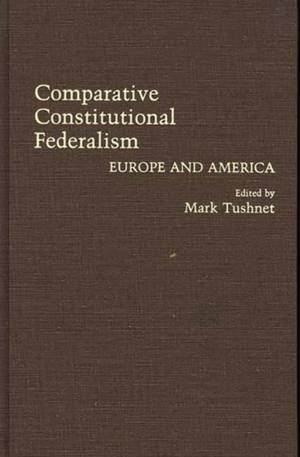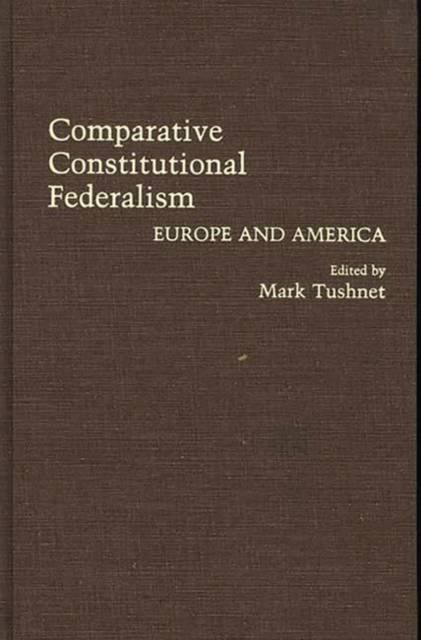
- Retrait gratuit dans votre magasin Club
- 7.000.000 titres dans notre catalogue
- Payer en toute sécurité
- Toujours un magasin près de chez vous
- Retrait gratuit dans votre magasin Club
- 7.000.0000 titres dans notre catalogue
- Payer en toute sécurité
- Toujours un magasin près de chez vous
Description
The near conjunction of the bicentennial of the United States Constitution in 1989 and the completion of the European common market in 1992 provides a unique opportunity for the comparative consideration of constitutional federalism. The experience of the United States, with its mature federal system, offers some useful comparisons and insights into the processes that may follow in a further federalization of the European Community. This book, a collection of essays on the constitutional dimension of federalism, is drawn from a conference sponsored by the Delegation of the Commission of the European Communities, and presents substantial analytic material on problems of federalism and integration.
The collection begins with a brief foreword by Lord Mackenzie-Stuart, discussing the European community's move toward a national identity. Following are the book's six chapters, written by U.S. and European legal scholars. The first provides important historical insights into the extended time period necessary before the United States could be considered a unified nation. Chapter two examines the complexities of the constitutional law of interregional migration and trade in the United States. A pair of complementary chapters describe how federal systems can respond to, and attempt to preserve, the diverse cultures that are located within an integrated political system. The use of local guarantees of fundamental rights as a counterweight to national norms follows, and a concluding chapter argues against any necessary path of development from economic to political, social, or cultural integration. A bibliographical essay, references, and a complete subject index are also included. This unique collection of essays will be a valuable contribution to courses in comparative law and political science, and an important addition to academic, public, and law libraries.Spécifications
Parties prenantes
- Auteur(s) :
- Editeur:
Contenu
- Nombre de pages :
- 184
- Langue:
- Anglais
- Collection :
Caractéristiques
- EAN:
- 9780313268885
- Date de parution :
- 24-10-90
- Format:
- Livre relié
- Format numérique:
- Genaaid
- Dimensions :
- 163 mm x 241 mm
- Poids :
- 444 g

Les avis
Nous publions uniquement les avis qui respectent les conditions requises. Consultez nos conditions pour les avis.






